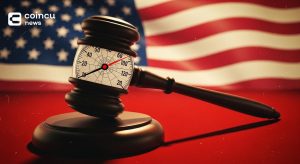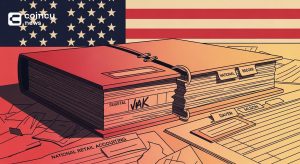Coinbase Has Victory With Supreme Court Case On Customer Disputes Arbitration
Key Points:
- Coinbase wins Supreme Court case on referring disputes to arbitration.
- 5-4 vote, with Justice Kavanaugh citing the benefits of arbitration over continued litigation.
- The case involved accusations by Abraham Bielski and a Dogecoin contest with unclear requirements.
Coinbase, according to Bloomberg, has won a case in the United States Supreme Court. The details of the case were not disclosed, but the verdict enhanced the company’s capacity to refer customer and employee issues to arbitration.

The judges held, 5-4, that federal court litigation must be stayed while a defendant files an appeal that would send the matter to arbitration.
Allowing district courts to proceed while the appeal is pending, said Justice Brett Kavanaugh for the court, would limit the advantages of arbitration.
“If the district court could move forward with pre-trial and trial proceedings while the appeal on arbitrability was ongoing, then many of the asserted benefits of arbitration (efficiency, less expense, less intrusive discovery, and the like) would be irretrievably lost,” Kavanaugh wrote.
The complaint also claimed that the business community has rallied behind Coinbase in the issue, claiming that continuing the action would be a needless expenditure. Consumer activists argue that judges should have the authority to select which claims are considered during appeals, just as they do in other areas of the law.

Coinbase is fighting accusations made by Abraham Bielski, who believes the cryptocurrency business owes him $31,000 for giving a fraudster remote access to his account. Coinbase is accused in a second case before the Supreme Court of hosting a $1.2 million Dogecoin contest without fully disclosing that participants were not required to acquire or sell the cryptocurrency.

Judge Ketanji Brown Jackson said in dissent that the majority conclusion “comes out of nowhere.”
“The Court concludes for the first time that an interlocutory appeal about one matter (arbitrability) bars the district court from proceeding on another (the merits). That logic has such significant implications for federal litigation that the majority itself shies away from the Pandora’s box it may have opened,” Jackson wrote.
DISCLAIMER: The Information on this website is provided as general market commentary and does not constitute investment advice. We encourage you to do your own research before investing.
Join us to keep track of news: https://linktr.ee/coincu
Harold
Coincu News





















